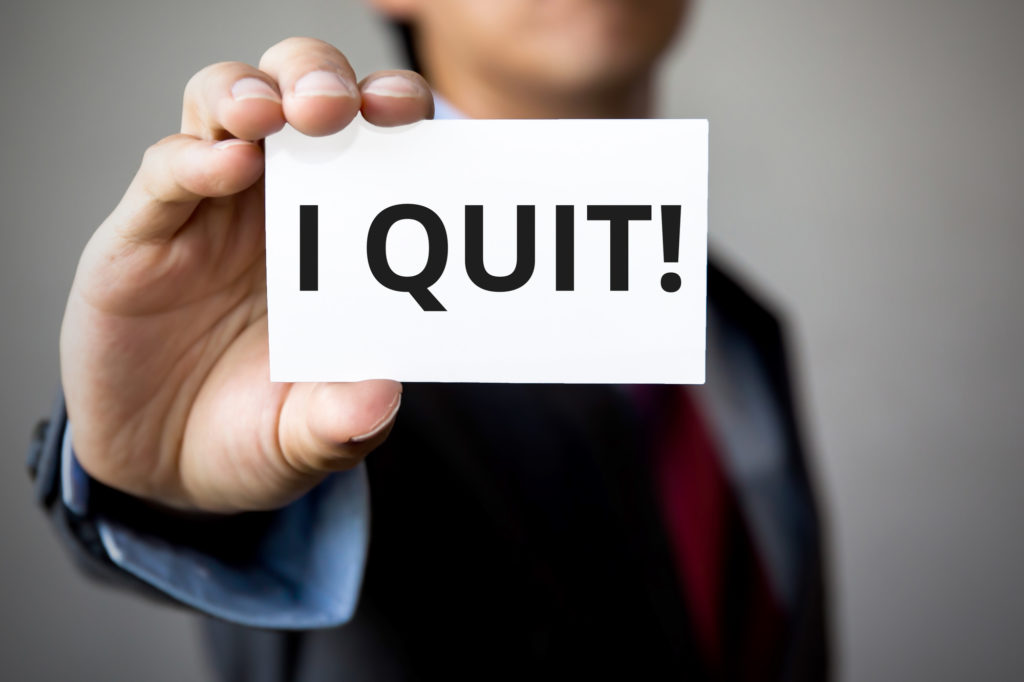
If you’ve spent a large amount of time daydreaming about pursuing your passions and being your own boss, there’s a good chance that you’ve considered freelancing.
And you’re not alone in that wish! The number of freelancers has increased by a considerable amount in the past few years.
But before you hand in your resignation letter, make sure a freelance career is your best option. Here are six things to consider before quitting your job for a freelance career.
1. Can You Afford to Quit Your Job?
It’s understandable that serving as your own boss and creating your own hours sounds great, but it is feasible?
Your financial health should be among the top considerations before quitting your job, especially since more than half of all Americans have less than $1,000 in savings.
As a result, it’s crucial to prepare for unemployment, no matter how temporary. Unless you’re freelancing on the side already, there’s no telling when your first gig will come in.
Be smart about it. If you can’t afford to freelance at the moment, it may not be the best time to quit your job.
2. What About Benefits?
Most employers offer benefits to attract new talent. These range from standard offerings such as healthcare coverage and a 401(k) to stock options and insurance discounts.
How will losing these benefits affect your finances? Furthermore, will quitting your job result in a loss of benefits for your family?
Even if the pay at your current job isn’t great, these benefits can improve the quality of your living to a point where it makes more sense to stay at your job. Medical bills can add up, after all.
3. How is The Market Outlook?
Though there isn’t anyone quite like you, there are plenty of other hungry freelancers out there and only so many jobs.
Be sure to consider the market outlook before making a decision. If the market is growing, that’s a good sign. If it’s stagnant or declining, having a stable career, for the time being, is a smarter choice.
4. Do You Have The Resources Needed to Freelance?
No matter what your freelance job entails, you’ll need resources of some sort.
Freelance writers only need a stable Internet connection, an outlet to write for, and a computer or tablet to create and share their work (though adding a steady stream of caffeine doesn’t hurt).
Freelance artists, on the other hand, need far more resources such as canvases, paints, pens, pencils, drawing pads, a workspace and more.
Even working at a call center or tutoring online has its own unique requirements.
Make sure you have everything you need.
5. What’s The Best Way to Quit Your Job?
Of course, in order to pursue a full-time freelance career, you’ll first need to quit your current job. For most of us, that’s easier said than done.
Determining how to tell your boss you’re quitting can be intimidating, especially if you go about it the wrong way.
Remain professional if you chose to leave. Avoid burning bridges and do your best to remain on good terms with your current employer.
6. How Will You Keep Track of Finances?
Last but not least, you’ll need a way to track your income and expenses.
For the former, you can use an online pay stub generator to create, print, and store pay stubs for safe keeping.
Expenses are a bit more complicated, especially when it comes to taxes. As a freelancer, you’ll need to fill out a W9 instead of a W2, which isn’t a walk in the park.
Keep track of all expenses for your business. That includes your work area, any materials needed for your job, travel for work, work-related lunches or meetings, and healthcare coverage.
Is A Freelance Career Right For You?
If you feel like it’s time to quit your job, the best piece of advice is to sleep on it. It’s okay to take your time and mull it over, you don’t want to make a rash decision that could affect your future.
If you liked this article, be sure to check out our other offerings. From the latest and greatest music to the best in adult entertainment, we cover everything you’re curious about!

